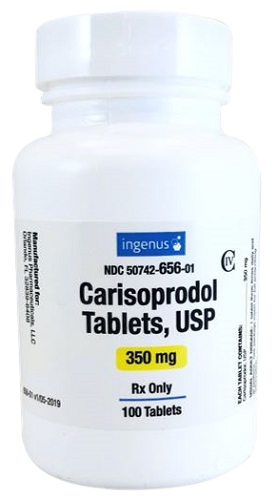
Carisoprodol is a muscle relaxant medication used to treat pain and discomfort caused by muscle spasms, strains, and sprains. However, despite its effectiveness, it has become a drug of abuse and has been linked to addiction and other harmful health effects. In this article, we will explore the dangers of carisoprodol addiction and offer steps for individuals seeking pain-free living.
Understanding Carisoprodol Addiction
Carisoprodol is a central nervous system (CNS) depressant and has been classified as a Schedule IV controlled substance by the Drug Enforcement Administration (DEA) due to its potential for abuse. When taken in large doses or for extended periods of time, the body can develop a tolerance to the drug, leading to the need for higher doses to achieve the same effects. Over time, the brain can become dependent on the drug, resulting in addiction.
The Signs of Carisoprodol Addiction
Carisoprodol addiction can manifest itself in a number of ways, including:
- Increased tolerance to the drug
- Withdrawal symptoms when the drug is discontinued
- Inability to control or limit drug use
- Negative impacts on personal relationships and responsibilities
- Continued drug use despite negative consequences
If you or a loved one is experiencing any of these symptoms, it may be a sign of carisoprodol addiction and a need for professional help.
The Dangers of Carisoprodol Addiction
Carisoprodol addiction can lead to a number of serious health problems, including:
- CNS depression, which can result in difficulty breathing, drowsiness, and even coma
- Overdose, which can lead to serious injury or death
- Withdrawal symptoms, which can be severe and include seizures, tremors, and severe anxiety
- Increased risk of injury or accidents due to impaired coordination and judgement
Getting Help for Carisoprodol Addiction
Recovery from carisoprodol addiction is possible with the right support and resources. The first step is to seek professional help, such as that provided by a qualified addiction specialist or treatment center. Treatment options may include:
- Medically-supervised detoxification
- Behavioral therapy and counseling
- Support groups and peer-led recovery programs
In addition, individuals can also benefit from a range of self-help strategies, including:
- Regular exercise and physical activity
- Healthy eating and nutrition
- Mindfulness and stress reduction techniques
Pain-Free Living is Within Reach
If you or a loved one is struggling with carisoprodol addiction, help is available. By seeking professional support and utilizing a range of self-help strategies, individuals can overcome addiction and find their way to a pain-free, fulfilling life.
 Skip to content
Skip to content